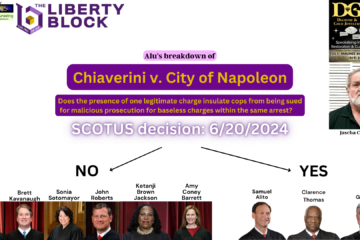There is a perpetual chronic blood shortage. Since I am an O- blood type (universal blood donor) and CMV (Cytomegalovirus) negative (a disease that most adults have been exposed to but is fatal if babies are exposed to it), I am constantly bombarded with emails from the Red Cross soliciting my blood. Fortunately, I donate my blood as often as they allow me to, but not everyone is like me.
In fact, most people are not. According to the Red Cross, only 3% of eligible people donate blood and only 7% of people are O- (with a guarantee that most of these people do not donate and are likely not CMV negative). As a result, it is a coin toss whether or not a newborn will obtain life-saving treatment since there is not enough time to test the newborn’s blood type ahead of time.
How do we solve this? The best way is to provide additional incentives for eligible people to be able to donate their blood.
Imagine if we could only eat food from farmers that donated their time and labor to produce it. That is the situation we are in now with blood. By allowing people to be compensated for donating their blood, we could readily increase the supply, especially if people are paid more given their blood type or eligibility. Imagine what parents would pay to have their child’s life saved instead of having to exclusively rely on donations, which are severely insufficient. Also, do not expect purchasing blood in this instance to be prohibitively expensive. With minimal government barriers to entry, many people will donate, which will substantially increase the supply and allow for a reasonable market price for blood. Americans are already allowed to sell their blood plasma and sperm, so there is no reason they should not also be allowed to sell their whole blood and/or other blood products (RBCs, WBCs, platelets) for money.
This principle holds true with organ donation, as well. I had a friend on dialysis who recently passed away because he was on the waiting list for years and never received a kidney from a donor. If people were allowed to be voluntarily compensated for their own organs, I am certain that my friend would still be here today.
While some may argue that there are ethical implications with being able to legally sell your blood and/or organs, I assert that the real ethical violations are manifested when the government imposes barriers against being able to do this. Not only does it make organs and blood less available to people that are in chronic need of them, it also implies that OTHER people own YOUR blood and YOUR organs since they are allowed to tell you what you can and cannot do with them. This is a form of tacit slavery that should not be allowed to persist in the 21st Century.
Luckily, New Hampshire state representative Jason Gerhard (R-Northfield) introduced HB1482 this legislative session to decriminalize the voluntary compensation for donations of organs and blood in an effort to alleviate these life-threatening shortages and end this murderous prohibition.
If you value freedom or would like to improve the survival of babies and chronically ill people, you agree that it is time to end this prohibition on being able to do what you want with your own body to help others with an added incentive.
Please make sure that you support and testify on this bill when the time comes. You may just save a life.
This article does not necessarily reflect the opinions of The Liberty Block or any of its members. We welcome all forms of serious feedback and debate.



2 Comments
Clarence · September 26, 2023 at 9:42 pm
A big cheer to Mr. Gerhard!
I’ve never heard a rationale for this, but it seems similar to cannabis prohibition and the like: something that was legal and not a problem was deemed illegal by The Powers That Be, and then over the years came to be thought of by most people as normal.
Jason Gerhard · September 27, 2023 at 1:59 am
Thanks for the support!
Comments are closed.